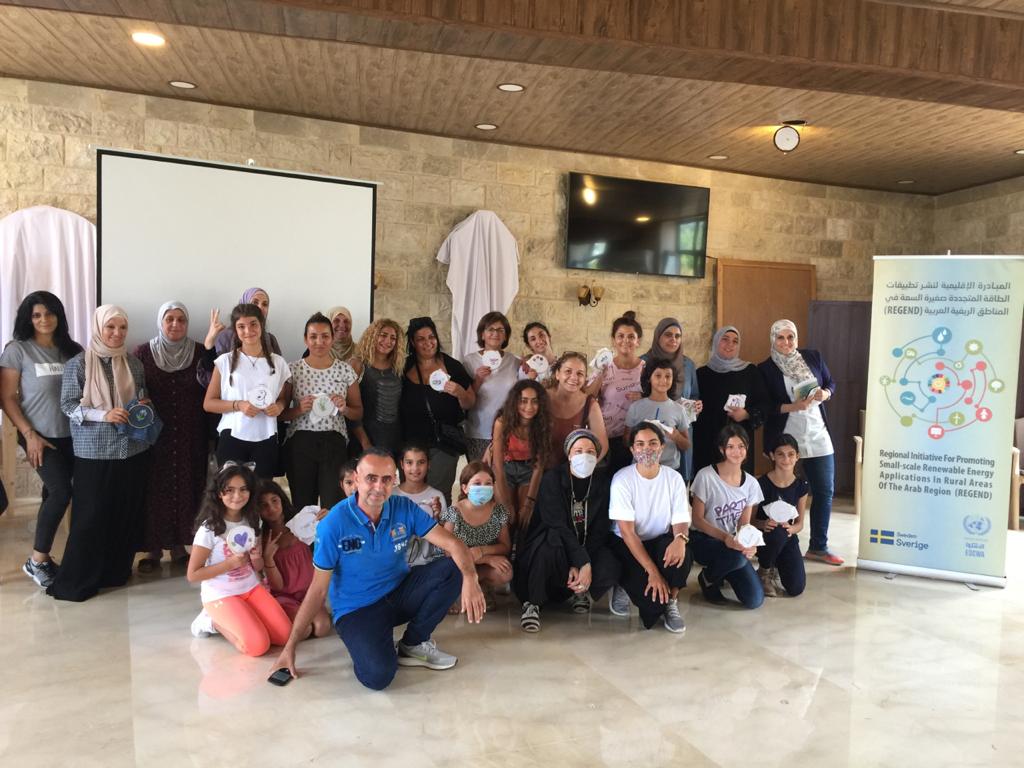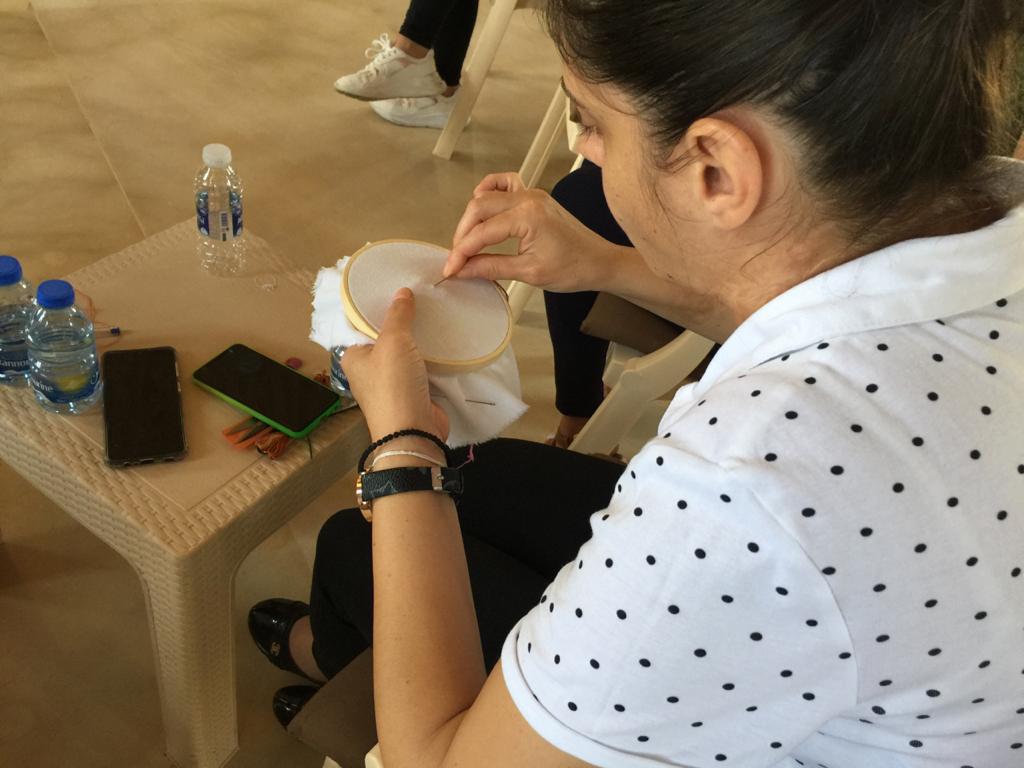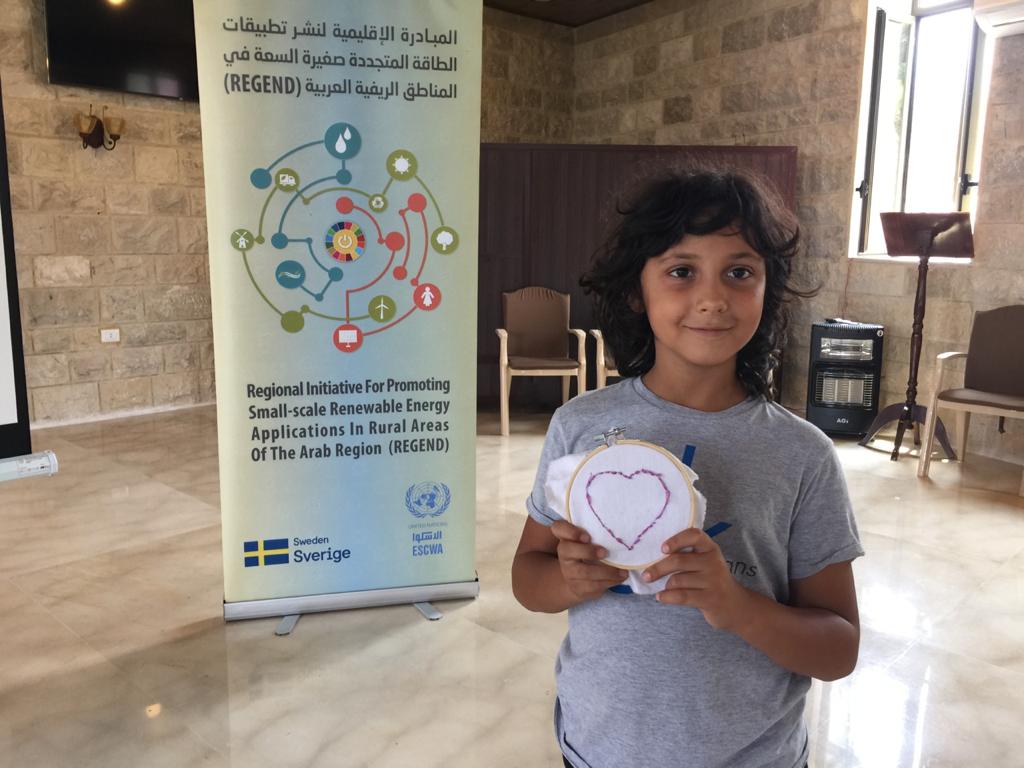The United Nations Economic and Social Commission for Western Asia (ESCWA) is working on a “Regional Initiative for Promoting Small-Scale Renewable Energy Applications in Rural Areas of the Arab Region (REGEND)”, which is funded by the Swedish International Development Cooperation Agency (Sida). REGEND aims to improve the livelihood, economic benefits, social inclusion and gender equality of Arab rural communities particularly marginalized groups, by addressing energy access, water scarcity and vulnerability, climate change and other natural resources challenges in three targeted countries, Jordan, Lebanon and Tunisia.
In this context, ESCWA, in partnership with the Municipality of Chaqdouf, is organizing a capacity-Building Workshop on “Sustainable and Effective Methods in Embroidery and Weaving”.
The workshop’s target is for the rural women of Chaqdouf to gain theoretical, technical, and practical skills in the fields of embroidery and needlework.
The workshop will cover both the technical and theoretical and the practical aspects. The first day of the workshop will be dedicated for theoretical explanation, and discussing best practices in embroidery and needlework, and mastering several types of stitches in a sustainable manner, while the second day will be dedicated for the practical aspect, where the attendees will do their own designs, and using the provided fabric, needles, and threads, they do their own products.
This workshop will mainly cover the below topics:
- The importance of these embroidery skills, and how to benefit from them, for women empowerment.
- How to use energy efficiently and sustainably during embroidery, and choosing the most suitable equipment, according to the needed results.
- Embroidery tools and their technical specifications (such types of fabrics and threads).
- Main types of stitches:
- Running stitch
- Back stitch
- Chain stitch
- French stitch
- How to choose colors, threads, and backgrounds
- Practical examples and activities for all of the above



